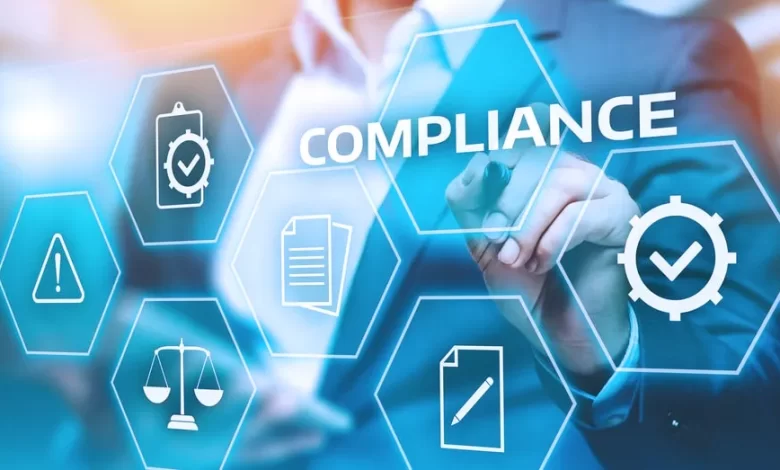Compliância: Navigating Ethics and Compliance in Modern Business

In the dynamic landscape of modern business, navigating regulatory requirements and ethical standards is paramount to ensuring sustainable and responsible practices. One term that has gained prominence in recent years is “compliância,” a concept rooted in compliance and ethics. This article delves into the significance of compliância as an essential element of responsible business, exploring its definition, importance, and the impact it has on organizations striving for ethical excellence.
Defining Compliância:
Compliância, derived from the Portuguese word for compliance, goes beyond mere adherence to regulations. It encapsulates a holistic approach to ethical conduct, encompassing not only legal requirements but also moral and social responsibilities. Compliância reflects a commitment to operating with integrity, transparency, and accountability, fostering a corporate culture that values ethical decision-making at every level.
The Importance of Compliância in Business:
- Legal Adherence: Compliância serves as a safeguard against legal repercussions by ensuring that businesses operate within the framework of applicable laws and regulations. This includes areas such as data protection, anti-corruption measures, and industry-specific compliance standards. By aligning with legal requirements, organizations mitigate the risk of legal challenges and reputational damage.
- Ethical Standards: Beyond legal obligations, compliância places a strong emphasis on ethical standards. It encourages businesses to go beyond the minimum requirements and embrace a moral compass that guides decision-making. This commitment to ethics helps build trust among stakeholders, including customers, employees, and investors, fostering long-term relationships based on integrity.
- Risk Management: Compliância is a crucial component of risk management. By identifying, assessing, and mitigating potential risks associated with non-compliance, businesses can protect themselves from financial losses and damage to their reputation. A proactive approach to compliance reduces the likelihood of crises and enhances an organization’s resilience in the face of challenges.
- Cultural Impact: Instilling a culture of compliância within an organization creates a positive and responsible working environment. Employees become more aware of the ethical implications of their actions, fostering a collective commitment to upholding the organization’s values. This cultural shift not only improves internal cohesion but also contributes to the overall reputation of the business.
- Global Reputation: In an interconnected world, businesses operate on a global scale, making reputation a valuable asset. Compliância plays a pivotal role in shaping how organizations are perceived internationally. Companies with a strong commitment to compliance and ethics are more likely to attract global partnerships, investors, and customers who prioritize responsible business practices.
Implementing Compliância:
- Leadership Commitment: Successful implementation of compliância starts at the top. Leadership commitment is crucial in setting the tone for ethical behavior throughout the organization. When leaders prioritize and model compliance, employees are more likely to follow suit.
- Comprehensive Policies: Developing and communicating comprehensive compliance policies is essential. These policies should cover legal requirements, ethical standards, and guidelines for reporting violations. Ensuring that employees understand and have access to these policies promotes a culture of transparency and accountability.
- Training and Awareness: Ongoing training programs are instrumental in keeping employees informed about compliance requirements and ethical expectations. Regular training sessions help employees stay updated on changes in regulations and reinforce the importance of compliância in their day-to-day activities.
- Monitoring and Reporting Mechanisms: Establishing robust monitoring and reporting mechanisms is vital for identifying potential compliance issues. This includes internal audits, whistleblower hotlines, and other channels through which employees can raise concerns without fear of retaliation.
- Continuous Improvement: Compliância is not a static process but an ongoing commitment to improvement. Regular assessments, feedback loops, and adjustments to policies and procedures based on lessons learned contribute to the continuous enhancement of an organization’s compliance framework.
The Future of Compliância:
As businesses evolve in response to changing global dynamics, compliância will continue to play a central role in shaping corporate behavior. The increasing scrutiny of companies by regulatory bodies, consumers, and the public highlights the need for a proactive approach to compliance and ethics.
In an era where corporate social responsibility is a key driver of consumer preferences, compliância serves as a competitive advantage. Organizations that prioritize responsible business practices are better positioned to thrive in the long term, attracting socially conscious consumers and investors who seek to support ethical and compliant enterprises.
Conclusion:
Compliância represents a pivotal shift in how businesses approach compliance and ethics. Beyond a mere checklist of legal requirements, it encompasses a holistic commitment to responsible business practices. Organizations that embrace compliância not only safeguard themselves from legal and reputational risks but also contribute to the broader goals of fostering a more ethical and sustainable global business environment.
As we navigate an increasingly complex and interconnected world, compliância emerges as a guiding principle for businesses seeking to not only meet regulatory standards but to exceed them, demonstrating a genuine dedication to ethical conduct and responsible corporate citizenship.



